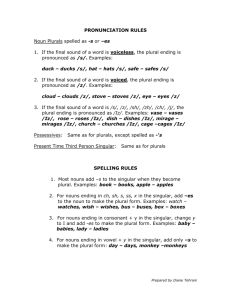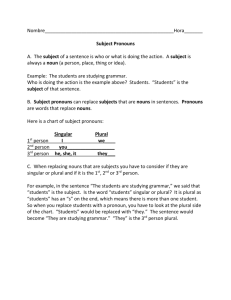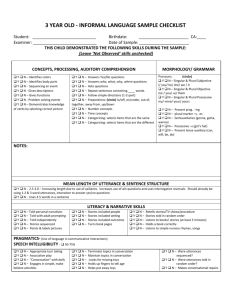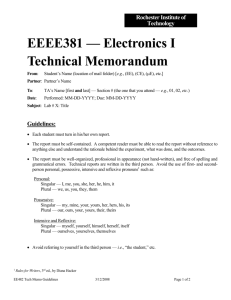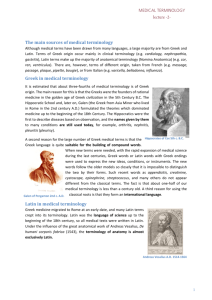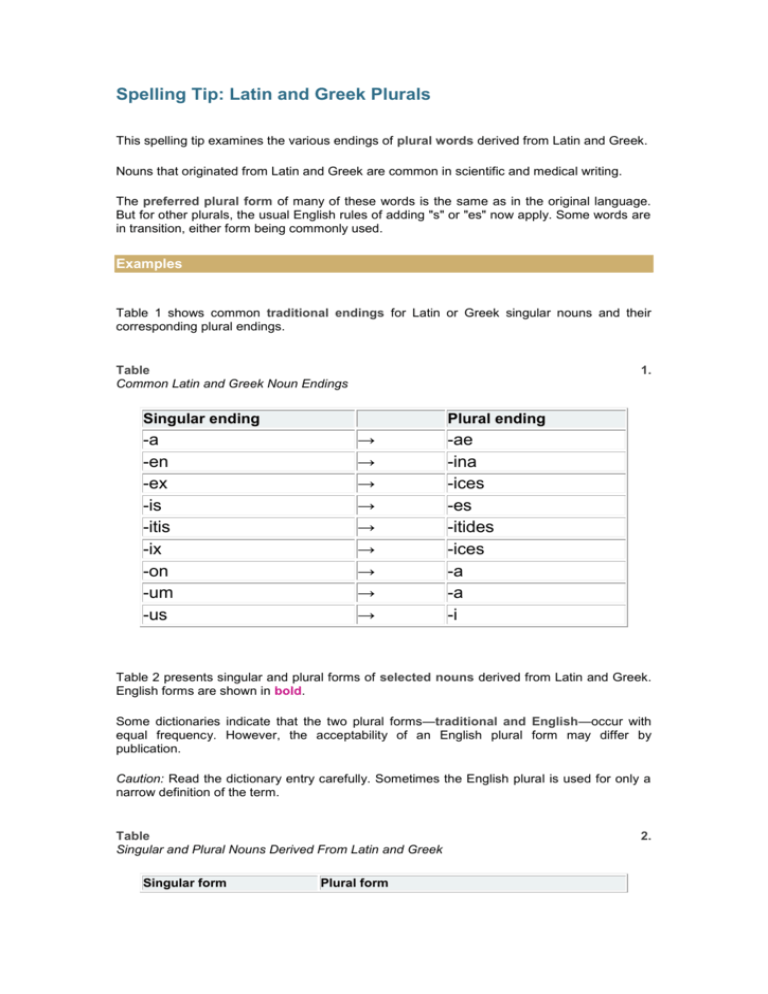
Spelling Tip: Latin and Greek Plurals
This spelling tip examines the various endings of plural words derived from Latin and Greek.
Nouns that originated from Latin and Greek are common in scientific and medical writing.
The preferred plural form of many of these words is the same as in the original language.
But for other plurals, the usual English rules of adding "s" or "es" now apply. Some words are
in transition, either form being commonly used.
Examples
Table 1 shows common traditional endings for Latin or Greek singular nouns and their
corresponding plural endings.
Table
Common Latin and Greek Noun Endings
1.
Singular ending
-a
-en
-ex
-is
-itis
-ix
-on
-um
-us
Plural ending
→
→
→
→
→
→
→
→
→
-ae
-ina
-ices
-es
-itides
-ices
-a
-a
-i
Table 2 presents singular and plural forms of selected nouns derived from Latin and Greek.
English forms are shown in bold.
Some dictionaries indicate that the two plural forms—traditional and English—occur with
equal frequency. However, the acceptability of an English plural form may differ by
publication.
Caution: Read the dictionary entry carefully. Sometimes the English plural is used for only a
narrow definition of the term.
Table
Singular and Plural Nouns Derived From Latin and Greek
Singular form
Plural form
2.
alga
analysis
bacterium
basis
criterion
datum
focus
foramen
formula
fungus
genus
hypothesis
index
larva
matrix
medium
nephritis
nucleus
parenthesis
phenomenon
radius
stimulus
stratum
synthesis
vertebra
aThe
algae or algas
analyses
bacteria
bases
criteria or criterions
data
foci or focuses
foramina or foramens
formulae or formulas
fungi or funguses
generaa
hypotheses
indices (math) or indexes
larvae or larvas
matrices or matrixes
media
nephritides
nuclei or nucleuses
parentheses
phenomena
radii or radiuses
stimuli
strata
syntheses
vertebrae or vertebras
plural ending for this word is an exception to the rule (see Table 1).
Quick Tips: Latin and Greek Plurals
1. Learn the traditional Latin and Greek plural endings (Table 1).
2. Check your dictionary (standard, medical) for the preferred plural form.
3.
Above all, use the plural form consistently within your document.
From Spelling Tip: Latin and Greek Plurals to English Grammar Tips
From Spelling Tip: Latin and Greek Plurals to BioMedical Editor home page
Sources
Council of Science Editors, Style Manual Committee. Scientific Style and Format:
The CSE Manual for Authors, Editors, and Publishers. 7th ed. Reston, VA: The
Council; 2006
Merriam-Webster's Collegiate Dictionary. 11th ed. Springfield, MA: Merriam-Webster,
Inc.; 2007.
Professional Service... Personal Approach
Copyright © 2006 - 2010 - BioMedical Editor - All Rights Reserved
Template Design | Web Site Design
Read more: http://www.biomedicaleditor.com/spelling-tip-latin.html#ixzz1bDlBaOHy


